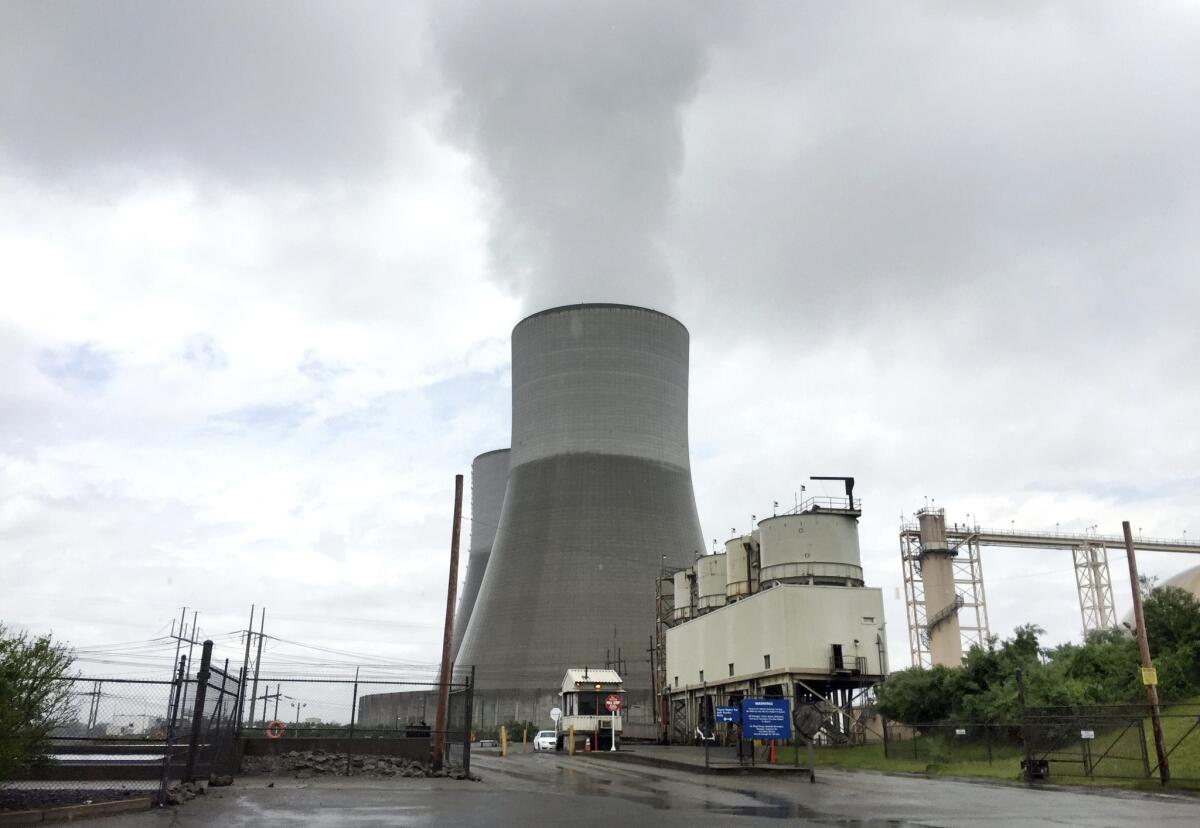As Trump touts coal while ditching the Paris accord, three more coal-fired plants shut

Reporting from New York — On the same day that President Trump announced the United States’ withdrawal from the Paris climate accord, environmentalists took consolation in the closure of three large coal-fired power plants — the kind often blamed as big contributors to climate change.
The three plants, two in New Jersey and another in Massachusetts, are the latest in a national trend toward phasing out coal-fired power plants in the face of tighter regulations and competition from cheap natural gas.
“The timing is kind of ironic. They are closing these plants the same day that Trump is pulling out of Paris. It shows that no matter what the president does, the country is moving towards cleaner sources of energy,’’ said Jeff Tittel, director of the New Jersey Sierra Club, which was celebrating the closures. “This is the future.’’
The New Jersey plants being closed, in Jersey City and near Trenton, are operated by PSEG Power, a subsidary of Public Service Enterprise Group, the state’s largest energy provider.
In Massachusetts, the Brayton Point Power Station in Somerset was the state’s last coal-fired plant and the largest in New England.
All three power plants, built in the 1960s, had been the targets of protests and lawsuits, with environmentalists charging they killed fish and spewed toxins from their looming smokestacks. But in the end, industry officials said they had to close because they were no longer economically viable.
“The sustained low prices of natural gas have put economic pressure on these plants for some time. In that context, we could not justify the significant investment required to upgrade these plants to meet the new reliability standards,” Bill Levis, president and chief operating officer of PSEG Power, said when the plants’ closing was announced in October.
The utility ran the Hudson Generation Station on a 250-acre site on the Hackensack River in Jersey City and the Mercer Generation Station in Hamilton Township, N.J. Both closed at midnight Thursday.
On the campaign trail, President Trump spoke frequently about his desire to put coal miners back to work and revive a flagging industry. However, economists say the coal industry’s decline is the result of irreversible market trends which make natural gas and renewable energy cheaper.
“In blaming environmental regulations under the Obama administration as the sole reason for the recent turmoil in the coal industry, Trump [is] … ignoring fundamental market realities that are buffeting the industry,’’ the Brookings Institution wrote in a report on coal in December.
Natural gas prices hit their lowest levels in nearly 20 years in 2016. And while coal use in the U.S. was down last year, the U.S. Energy Information Administration forecasts a 5% increase in coal production in 2017, mainly due to expanded exports. It also forecast some growth in coal-fired electricity generation that could boost coal production in 2018.
According to a tally kept by the Sierra Club, 253 of the nation’s more than 500 coal plants have closed or are scheduled to close by 2021.
More to Read
Sign up for Essential California
The most important California stories and recommendations in your inbox every morning.
You may occasionally receive promotional content from the Los Angeles Times.










